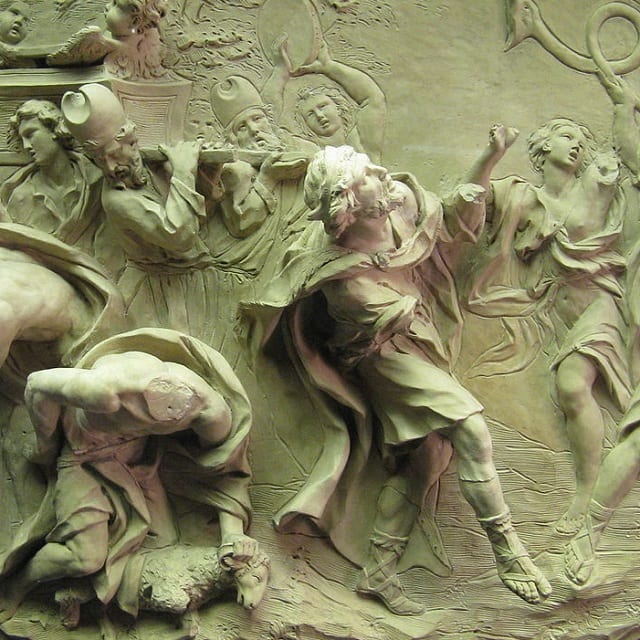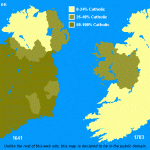
Someone made a snide reference to “some lady jumping up and down and rolling around on the church floor” and automatically assumed that this was counterfeit or illegitimate. The following is my reply.
*****
How do you know for sure that it is not the “real thing”: judging by a biblical worldview? There were some pretty strange things sanctioned by God. He told Hosea the prophet to marry a prostitute as an analogy of unfaithful Israel and God. He had the prophet Isaiah walk around naked. He spoke through a donkey to Balaam. He had a whale swallow the prophet Jonah.
*
People thought the first disciples and Christians on the Day of Pentecost were nuts when they received the Holy Spirit and spoke in other languages (Acts 2). A repentant woman washed Jesus’ feet with her tears. St. Paul teaches that there is a private prayer language that others cannot understand.
King David was despised by his wife Michal for dancing wildly in joy before the ark of the covenant in Jerusalem. She thought he was “shamelessly exposing himself” in doing so (see 2 Samuel 6:14-22) and was punished by God for it. Many passages, especially in Psalms, refer to dancing before the Lord and being joyful; loudly shouting, singing, and playing praise music, corporate weeping, etc.:
1 Chronicles 15:28 (RSV) So all Israel brought up the ark of the covenant of the LORD with shouting, to the sound of the horn, trumpets, and cymbals, and made loud music on harps and lyres. (cf. 2 Chr 15:14; 20:19; Neh 9:4)*Ezra 3:10-13 And when the builders laid the foundation of the temple of the LORD, the priests in their vestments came forward with trumpets, and the Levites, the sons of Asaph, with cymbals, to praise the LORD, according to the directions of David king of Israel; [11] and they sang responsively, praising and giving thanks to the LORD, “For he is good, for his steadfast love endures for ever toward Israel.” And all the people shouted with a great shout, when they praised the LORD, because the foundation of the house of the LORD was laid. [12] But many of the priests and Levites and heads of fathers’ houses, old men who had seen the first house, wept with a loud voice when they saw the foundation of this house being laid, though many shouted aloud for joy; [13] so that the people could not distinguish the sound of the joyful shout from the sound of the people’s weeping, for the people shouted with a great shout, and the sound was heard afar.*Psalm 47:1 Clap your hands, all peoples! Shout to God with loud songs of joy!*Psalm 95:1-2 O come, let us sing to the LORD; let us make a joyful noise to the rock of our salvation! [2] Let us come into his presence with thanksgiving; let us make a joyful noise to him with songs of praise! (cf. 33:3)*Psalm 98: 4, 6 Make a joyful noise to the LORD, all the earth; break forth into joyous song and sing praises! . . . [6] With trumpets and the sound of the horn make a joyful noise before the King, the LORD! (cf. 100:1)*
Psalm 150:3-5 Praise him with trumpet sound; praise him with lute and harp! [4] Praise him with timbrel and dance; praise him with strings and pipe! [5] Praise him with sounding cymbals; praise him with loud clashing cymbals!
What part of all that must be disagreed with by any Christian who believes in biblical inspiration? It may indeed possibly (in any given case) be mere uncontrolled emotions (as opposed to a true manifestation of the Holy Spirit); on the other hand, this may also not be the case. That’s my point. It’s not automatically discounted because it’s “weird” and “eccentric” to our eyes. Back to the “strange” biblical parallels . . .
*
The Church may, of course, regulate as to where and when and how much behavior of this sort is permissible within the parameters of liturgy and the Mass (much of it may be able to be expressed — and permitted –, for example, in prayer meetings rather than the Mass or a Protestant service), but regulation and discussions about prudence and propriety are not prohibition.
*
***
*
Photo credit: David dancing before the Ark [portion]. Italian, Rome about 1660-65. Uploaded by Yair Haklai (8-21-09) [Wikimedia Commons / Creative Commons Attribution-Share Alike 3.0 Unported license]
*
***












